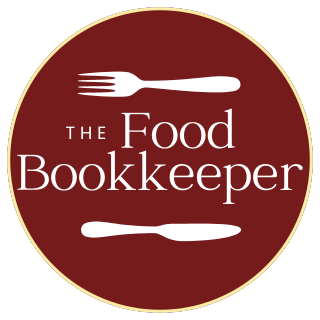Running a restaurant is about more than just serving delicious meals; it involves managing finances effectively to ensure profitability and compliance with tax regulations. Bookkeeping plays a crucial role in this process, not only in keeping track of expenses and revenue but also in maximizing tax savings. In this blog post, we’ll explore how proper bookkeeping can save on a restaurant’s taxes and contribute to its financial health.
Accurate Expense Tracking:
- One of the primary benefits of bookkeeping for restaurants is accurate expense tracking. By diligently recording all expenses, including ingredient costs, rent, utilities, payroll, and other operational expenses, restaurant owners can claim deductions on their taxes. These deductions can significantly reduce taxable income, resulting in lower tax liabilities.
Identifying Tax Deductions:
- Bookkeeping allows restaurant owners to identify various tax deductions that they may be eligible for. For example, expenses related to equipment purchases, repairs, advertising, and employee benefits are often deductible. By maintaining detailed records of these expenses throughout the year, restaurant owners can maximize their deductions and minimize their tax burden.
Managing Cash Flow:
- Effective bookkeeping provides insights into a restaurant’s cash flow, allowing owners to make informed decisions about expenditures and investments. By monitoring cash flow regularly, restaurant owners can identify areas where costs can be reduced or revenue can be increased, ultimately improving the restaurant’s profitability and reducing tax liabilities.
Compliance with Tax Regulations:
- Proper bookkeeping ensures that restaurants remain compliant with tax regulations, avoiding costly penalties and fines. By accurately reporting income and expenses, as well as adhering to deadlines for tax filings and payments, restaurants can demonstrate their financial transparency and integrity to tax authorities.
Utilizing Tax Credits:
- In addition to deductions, bookkeeping can help restaurants take advantage of tax credits, which can directly reduce tax liabilities. For example, restaurants that invest in energy-efficient equipment or hire employees from certain demographic groups may be eligible for tax credits. By keeping detailed records of qualifying expenses and activities, restaurant owners can maximize their eligibility for these credits.
Strategic Tax Planning:
- Bookkeeping provides the foundation for strategic tax planning, allowing restaurant owners to proactively manage their tax liabilities. By analyzing financial data and consulting with tax professionals, restaurants can implement tax-saving strategies such as income deferral, depreciation scheduling, and entity structuring. These strategies can help optimize tax outcomes and preserve more of the restaurant’s earnings.
In conclusion, bookkeeping is not just a mundane task; it’s a powerful tool for saving on taxes and improving the financial health of restaurants. By accurately tracking expenses, identifying deductions, managing cash flow, maintaining compliance, utilizing tax credits, and engaging in strategic tax planning, restaurant owners can minimize their tax liabilities and keep more of their hard-earned profits. Investing in professional bookkeeping services or using reliable accounting software can pay dividends in tax savings and long-term success for restaurants.
